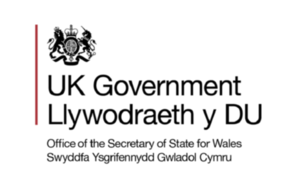Forest of Dean visitors and residents urged to stop potential spread of African Swine Fever
People visiting or living in the Forest of Dean are being reminded not to feed the wild boar or drop food to help prevent an outbreak of African Swine Fever (ASF).
Over 2.5 million people visit the Forest of Dean and with the large number of staycations this summer due to the pandemic, there is a concern that some visitors may not properly dispose of food waste. This increases the risk of wild boar eating food scraps, which in turn increases the risk of African swine fever being introduced to the UK, which would be devastating for the UK pork industry.
African swine fever poses no risk to human health but is a highly contagious disease for pigs and wild boar with no vaccine available. In recent years it has been circulating in parts of Africa, Eastern and Central Europe and Asia, leading to the deaths of millions of pigs and causing significant disruption to the meat trade. In 2020 the disease spread to Germany through the movement of wild boar and this year it has been found in their farmed pigs for the first time.
The virus can survive for weeks and even months in pork meat and pork products, including cooked, cured, and frozen meat. The most likely way the virus could be introduced to the UK is by a member of the public bringing pork or pork products back from an affected country.
UK Deputy Chief Veterinary Officer Richard Irvine said:
If African Swine Fever arrived in the Forest of Dean it would have a devastating impact on our pigs and pig keepers. We regularly test our contingency plans to ensure that we are ready to respond to potential future disease outbreaks.
If African Swine Fever arrived in the Forest of Dean it would have a devastating impact on our pigs and pig keepers. We regularly test our contingency plans to ensure that we are ready to respond to potential future disease outbreaks.
Forest of Dean District Council, Deputy Leader of the Council and Cabinet Member for Communities Paul Hiett said:
We are grateful to live in a beautiful and culturally rich part of England. It is important that we preserve our environment and proactively prevent any challenges to our individual and collective enjoyment of these natural resources.
Join us and play your part to help prevent the spread of African Swine Fever to the wildlife in our beloved forests. Secure waste bins are provided, please put your food waste in them. Together we can help to maintain a healthy forest and wildlife.
Everyone can help to stop the spread of ASF to the UK by doing the following:
- If you are visiting ASF-affected areas in Europe, Asia, or Africa you must not bring any pork or pork products back to the UK.
- Disposing of leftovers or food waste in secure bins that pigs or wildlife cannot access.
- Farmers, the public and members of the food industry should practise high biosecurity standards, including never feeding catering waste, kitchen scraps or meat products to pigs which is illegal and can spread the disease.
The Government continually monitors disease outbreaks around the world to assess whether there may be risks for the UK and takes action to limit the risk of the disease reaching our shores.
Further information on ASF, including for people travelling abroad, can be found here. Visit Forestry England’s website for information about wild boar.
Government departments across England, Scotland, Wales and Northern Ireland recently tested African swine fever contingency plans during Exercise Holly.
